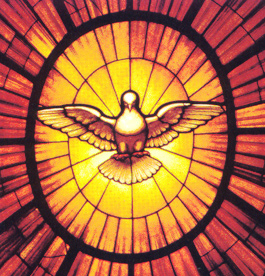Last Sunday, we saw how St. Peter was graced by faith. God the Father revealed the truth of Jesus as Messiah to him. Yet today, almost immediately after being elected by Jesus to be the foundation of the Church, he shows how fragile human wills are. When he could not accept what Jesus was saying about his mission, Jesus rebuke him saying that he did not think in God’s way.
Can we always think in God’s way? I believe that we should not misunderstand the situation. Jesus revealed that God wanted Him to go to Jerusalem where he would suffer under the chief priests and scribes, then be put to death and then rise again. St. Peter had heard enough from Jesus that God the Father had sent Jesus. Thus, what Jesus said was something that is part of Jesus’ mission. He only considered that his master was going to be in danger. That is why Jesus said that St. Peter was not thinking in God’s way. Thus, Jesus did not mean that we have to always think in God’s way. Rather, we must not always think in man’s way.
It was God’s will that Jesus was to go to Jerusalem. It was not God’s will that the chief priests and elders chose not to listen to Jesus. It was not God’s will that they chose to harm Jesus. It was God’s will that Jesus was to go to Jerusalem. God does not control human decision. Human beings control human decision. God may try to influence our decisions but always to do good. Yet after the evil that was going to be done to Jesus, God finds a way to right the situation: Jesus will rise on the third day. St. Peter did not see that. He only saw the evil that was to be done to his master but not that God will raise Jesus.
There are many times when we find ourselves facing situations that we do not like. Our human way of thinking would ask the question why? Sometimes we are able to discern an answer, but other times we are not able to. When we bring our faith into the picture, that is, think in God’s way, we find that what we need to do is not asking but trusting. It is not that God wills evil for us but that in times of difficulty, God knows what needs to be done. Are we able to let go and let God handle the situation?
Once we understand this, we would understand what it means to carry our cross. The cross is not the suffering that God wills on us, it is the faith that we must bear in times of difficulty and suffering. We often say that our illness is our cross. We often say that we need to carry the cross when we find ourselves in difficulty. We must realise that what we are saying is that we must carry our faith, trusting that God will do what He thinks is best. Letting God also means that we continue to pray and when he provides us with solutions to our difficulty, we are to make a decision. We still have to say yes or no to Him. Sometimes, when we think in the human way, the solution that God suggests does not seem logical. Yet, when we think in God’s way, we find wisdom in what the world considers folly. When we say yes to God’s way, we will find life.
You will probably say to me, “Father, that is all good in theory. In practice, how do I know what to choose?” To think in God’s way means we must open our minds to God Himself. To do that means we must pray. I don’t mean mumble prayers, rather to open our minds and hearts to God in silence. It is in the silence of our hearts, not crowded with human thinking that we are able to see clearly. This needs practice. This is why we are to pray everyday. It is training our minds and hearts to enter into God’s way of thinking. Convention human wisdom also has something similar: we say practice makes perfect. So dear brothers and sisters, let us practise thinking in God’s way by having a consistent prayer life so that we may say yes to eternal life when God presents us with it.








